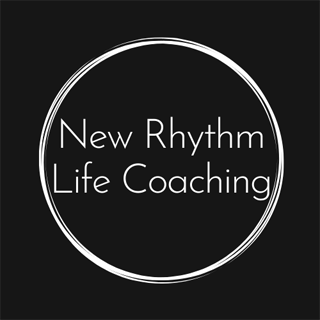Am I Really Hungry?
Hunger is partly a learned occurrence through sight, sound, smell, and association.
Often, we are not hungry, but we walk into Costco and smell the cookies and cakes baking, or see food samples around the store floor and instantly feel hungry.
Many are familiar from Psychology 101 with Pavlov’s dogs study.
The sound of the dinner bell caused the dogs to salivate.
The sound of the lab assistants walking down the hallway to feed the dogs prompted the dogs to salivate.
After being fed by lab assistants all wearing lab coats, the sight of the lab coats triggered salivation in the dogs.
This important discovery between the dog’s ‘hard-wired’ reflex (salivation) that did not have to be learned, and the stimulus (dinner bell, lab coats, sound of the footsteps) proved that any object or event in which the dogs learned to associate with food would cause the same response.
Time of day is another example where we feel hungry because of consistently eating at certain times of the day.
If we consistently eat dinner every night at 6:30 p.m., then we develop a conditioned response to that time.
Even if you have a larger than normal lunch, you are just as hungry at 6:30 p.m. as if your lunch had been a usual portion.
My client Suzan really struggled with the clock.
She had begun doing intermittent fasting, and often chose to fast through lunch.
Even though she was not physically hungry, as soon as she saw the clock read 12:00 p.m., her mind began offering her a stream of thoughts that she recognized would trigger (mind) hunger:
“It’s lunchtime, I should be hungry now.”
“I have always eaten at noon—noon is lunchtime.”
“It’s not normal to not eat lunch.”
“I have always been told we should eat three meals a day.”
“Eating three meals a day is healthy.”
“A ham and cheese sandwich on fresh French bread would be so good right now.”
“I miss the days when I could eat a sandwich, chips, and a Little Debbie Oatmeal Pie or Star Crunch Snack for lunch and not gain one pound.”
There is no shortage of things that we’re conditioned to associate with eating: vending machines, fast food restaurants, convenience stores, grocery stores, coffee shops, and many of these places are within the first block or two from where most of us live.
From inside your home there are TV ads, ads for food on social media and the Internet, and food ads in magazines.
Author Geneen Roth calls this, “mind hunger.”
Roth explains in her online article, Satisfying Mind Hunger, “Most of us confuse mind hunger, which has nothing to do with food, with body hunger, which does. After years of off-and-on dieting, we aren't even sure we know how to feel true hunger; we no longer trust the innate wisdom of our biology. But being hungry is like being in love: If you don't know, you're probably not. Your body lets you know in no uncertain terms when it wants food. Mind hunger, on the other hand, is endless, bottomless, erratic. You pass a bakery and suddenly you have to have an éclair, even though you ate breakfast 10 minutes ago. You're sitting in a restaurant, see a plate of mashed potatoes go by, and want some now, even though you're in the middle of a very good meal.”
Can you think of where you have a learned response creating “mind hunger?”
Many common ones are:
Snack food while watching TV in the evening
Popcorn, candy, and a (sugary or alcoholic) drink while watching a movie
Peanuts, popcorn, and a (sugary or alcoholic) drink at a hockey game
Snacks and a (sugary or alcoholic) drink at the beach
Breakfast at 7:00 a.m.
Lunch at 12:00 p.m.
Dinner at 7:00 p.m.
Hunger is not determined by the time gap between eating.
Think about when you wake up in the morning—many are not hungry after going often around 12+ hours without eating.
However, you can feel hungry during the short period without food between breakfast and lunch, or lunch and dinner.
Dr. Jason Fung explains hunger in his book, The Obesity Code, “How can people fast for days without being hungry? It comes down to the fact that hunger is not determined by not eating for a certain period of time. Rather, it is a hormonal signal. It does not come about simply because the stomach is empty. When you avoid natural stimuli to hunger, such as the sight and smell of food, as well as the conditioned stimuli to hunger—specific mealtimes, movies, ball games, any event where you normally eat and have learned to expect food—you help avoid that hormonal signal.”
So how do we break these learned occurrences between food and our senses and associations?
1. GAIN AWARENESS of the thoughts creating hunger,
2. DECIDE if you want to continue to keep the associations or act on the hunger created by sounds, sight or smells related to food, and
3. CHOOSE ON PURPOSE the habits you want to create to support who you want to be.
Please check out my articles posted to my website where I explain in detail, awareness (“You Have the Power to Stop Overeating: Awareness,”), decisions (“Take Control of Your Weight With A Decision”), and creating new habits (“How to Become the Person Who Creates Lasting Weight Management”).
Discover the learned occurrences creating your mind hunger to take control and stop overeating when your body is not in need of fuel.
Next week I’ll be addressing emotional (mind) hunger versus physical hunger, and offer a tool to help you distinguish between the two to help with only eating when your body needs fuel to reduce and eliminate overeating.

